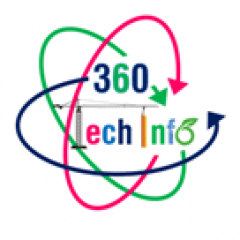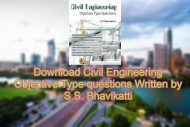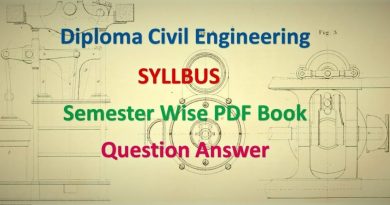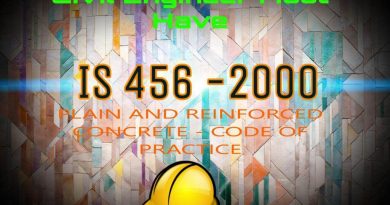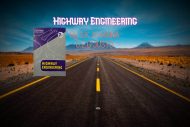Civil Engineering Objective Type questions Written by S.S. Bhavikatti
Civil Engineering Objective Type questions is covered a vast syllabus of civil engineering competitive exam like UPSC, GATE, PSC, CPWD, JOINT CSIR-UGC, INDIAN FOREST SERVICES, PWD ETC .
on every aspect of civil engineering. With this objective, competitive examinations are conducted to
select candidates for admission to postgraduate courses, UPSE, BHEL, ONGC, NTPC and many
more organizations. this book has been prepared to enable the candidates to glance through all the subjects and prepare themselves for the competitive examinations.First presented briefly and then an exhaustive set of objective type questions with keys at the end are presented.
The author hopes all UG students, students preparing for competitive examinations and practising
engineers will find this book useful.
Table of content in Civil Engineering Objective Type questions Book
- Materials of Construction
1.1 Stones
1.2 Characteristics of Good Building Stones
1.3 Timber
1.4 Bricks
1.5 Clay Products
1.6 Ferrous Metals
1.7 Non-Ferrous Metals
1.8 Alloys
1.9 Cement
1.10 Mortar
1.11 Cement Concrete
1.12 Concreting
1.13 Lime
1.14 Pozzolanas
1.15 Paints, Varnishes and Distempers
1.16 Miscellaneous Materials
Multiple-Choice Questions - Building Construction
2.1 Introduction
2.2 Foundations
2.3 Roofs
Multiple-Choice Questions - Surveying
3.1 Surveying
3.2 Errors in Surveying
3.3 Levelling
3.4 Permanent Adjustments of Dumpy level and Theodolite
3.5 Circular Curves
3.6 Precise Levelling
Multiple-Choice Questions - Engineering Mechanics
4.1 Resultant and Equilibrium of System of Coplanar Concurrent Forces
4.2 Beams
4.3 Friction
4.4 Centre of Gravity and Mass Moment of Inertia
4.5 Work Energy Method
4.6 Rotation of Rigid Bodies
Multiple-Choice Questions - Strength of Materials
5.1 Introduction
5.2 Simple Stresses and Strains
5.3 Compound Stresses and Strains
5.4 Theories of Failure
5.5 Shear Force and Bending Moment Diagrams
5.6 Stresses in Beams
5.7 Torsion
5.8 Thin and Thick Cylinders and Spheres
5.9 Columns and Struts
Multiple-Choice Questions - Structural Analysis
6.1 Introduction
6.2 Influence Lines
6.3 Cables and Suspension Bridges
6.4 Slope Deflection Method
6.5 Moment Distribution Method
6.6 Column Analogy Method
6.7 Influence Line Diagrams for Statically Indeterminate Beams
6.8 Analysis of Multistorey Buildings by Approximate Methods
6.9 Two Hinged Arches
6.10 Matrix Method of Structure Analysis
6.11 Plastic Analysis
Multiple-Choice Questions - R.C.C. Design (As Per IS : 456-2000)
7.1 Methods of R.C.C. Design
7.2 Strength of Doubly Reinforced Sections
7.3 Limit State of Serviceability
7.4 Requirements of Reinforcements
7.5 Design of Circular and Odd Shaped Slabs
7.6 Yield Line Analysis of Slabs
Multiple-Choice Questions - Steel Structures (As Per IS 800-2007)
8.1 Advantages and Disadvantages
8.2 Principle of Limit State Design
8.3 Bolted Connections
8.4 Welded Connections
8.5 Design of Tension Member
8.6 Design of Compression Members
8.7 Column Splice
8.8 Design of Beams
Multiple-Choice Questions - Fluid Mechanics
9.1 Introduction
9.2 Kinematics of Fluid Motion
9.3 Dynamics of Fluids
9.4 Laws of Mechanics
9.5 Turbulent Flow in Pipes
Multiple-Choice Questions - Hydraulic Machines
10.1 Turbine
10.2 Types of Hydraulic Turbines
10.3 Pumps
Multiple-Choice Questions - Irrigation Engineering
11.1 Quality of Irrigation Water
11.2 Canal Irrigation System
11.3 Sedimentation Transport and Design of Channels
11.4 Cross Section of Canal
11.5 Waterlogging and Salinity of Soil
11.6 Diversion Head Works
11.7 Hydraulic Jump
11.8 Theories of Seepage
11.9 Canal Falls
11.10 Miscellaneous Canal Structures
11.11 Tank Irrigation
Multiple-Choice Questions - Soil Mechanics and Foundation Engineering
12.1 Introduction
12.2 Properties of Soils
12.3 Permeability of Soil
12.4 Seepage
12.5 Compressibility and Consolidation
12.6 Shear Strength
12.7 Earth Pressure and Retaining Structure
12.8 Foundations
12.9 Soil Stabilization
12.10 Types of Foundations
Multiple-Choice Questions - Environmental Engineering
13.1 Sources of Water
13.2 Sanitary Engineering
Multiple-Choice Questions - Highway Engineering
14.1 Role of Transportation
14.2 Highway Construction
14.3 Traffic Engineering
Multiple-Choice Questions - Railway Engineering
15.1 Introduction
15.2 Sleepers
15.3 Ballast
15.4 Geometric Design
15.5 Curves
Multiple-Choice Questions - Tunnelling
16.1 Tunnel Drainage
Multiple-Choice Questions - Docks and Harbour Engineering
17.1 Types of Harbours
17.2 Features of a Harbour
Multiple-Choice Questions - Bridge Engineering
18.1 History of Bridges
18.2 Selection of Bridge Site
Multiple-Choice Questions - Airport Engineering
19.1 Introduction
19.2 Terminal Area
Multiple-Choice Questions
To buy this book click on below
Disclaimer- I am an amazon affiliate marketer. All given links in this post are for promoting amazon. Please ensure to buy something from Amazon
Also you can check..
[PDF] Download A Textbook of Fluid Mechanics & Hydraulic Machines By R K Bansal
Download Strength of Material Book by Ramamrutham
Building Materials book By S. K. Duggal
Surveying and Leveling book By N.N. Basak
PDF of Surveying and Leveling vol. I and II by B.C. Punmia
“Highway Engineering by SK Khanna and C E G Justo” | Highway Engineering by SK Khanna and C E G Justo |
|---|
[PDF] Text Book of Engineering Drawing
How can we conserve water in our homes
Polytechnic/ Diploma Semester Wise E-Book for Civil Engineering
Concrete technology theory and practice by M.S. Shetty
Civil Engineering Objective Type questions Written by S.S. Bhavikatti
